Dos and Don’ts of Mouth Rinsing
Oral rinsing aka mouth rising is highly beneficial to keep your mouth secure from any bacterial infection or other damages. In this process, the person uses a liquid product to rinse the complete mouth including gums and teeth. The liquid has antiseptic that can kill any bacteria available in the mouth. But, how come bacteria reached your mouth. It’s because of the food we eat.
If we intake food and some particles remain stuck between the teeth, it can cause bacterial infection. If you aren’t doing regular brush or doing it in the wrong manner, the food particles are more likely to remain stuck between teeth. Once these particles started to decay, the enamel on teeth can be damaged due to bacterial infection.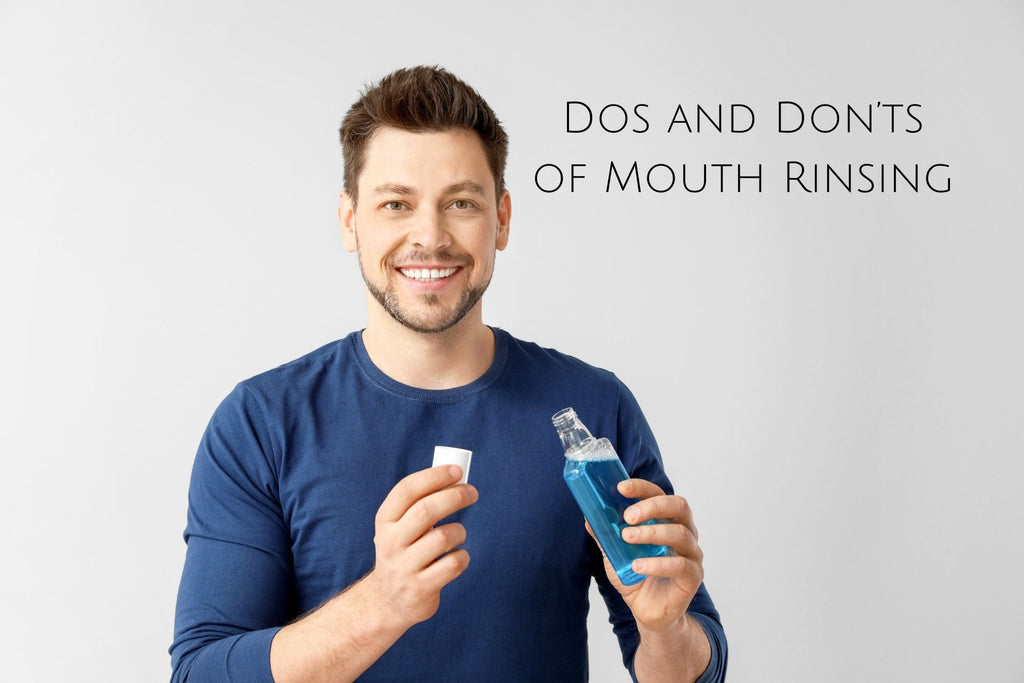
The teeth enamel is the protective layer and is responsible for protecting them. Once the enamel is gone, the bacteria start causing decay and hence the person faces cavities. But, how can we avoid such problems?
How does Mouth Rinsing work?
Proper regular brushing is the obvious way to secure mouth problems. But, having mouth rinsing included in the daily routine is going to help a lot more. While some people use it to curb the bad breath problem, others are adopting it to fight tooth decay.
But you’re wrong if you think that mouthwash can replace the toothbrush and itself can handle mouth protection. It can show effective outcomes if used in the right manner. The mouth rinsing oral hygiene can refresh your breath and avoid bad smells. It is the basic usage of mouthwash that everyone is aware of. While the prime benefit of mouthwash remains the sound protection of teeth and gums. 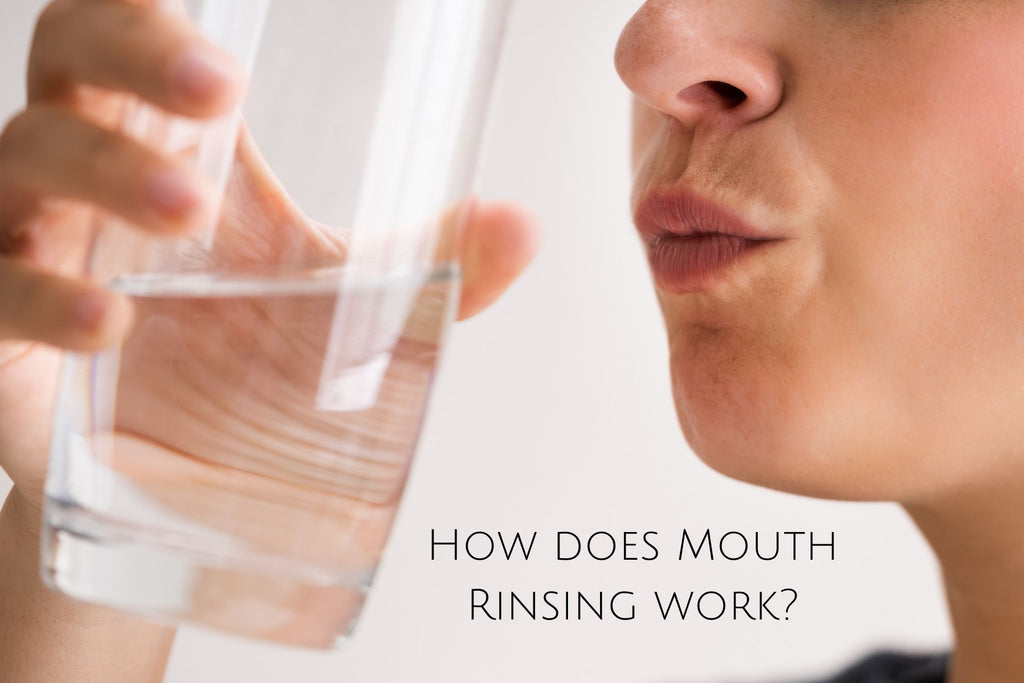
The antiseptic and fluoride rinses are responsible for the magic. There are a lot of acids available in our mouth, thanks to the food and drinks we intake daily. You might have been under the impression that the toothbrush is done and there is nothing to worry about.
But, clearly, that’s not the case anymore. Our sensitive mouths have various harmful elements that shouldn’t be there and the mouthwash is going to provide the much-needed care and protection. The dentists also prescribe various mouth rinsing products if you have a mouth infection.
Choosing mouthwash is also very critical as not every available is correct for usage. There are numerous mouthwash options available to choose from. Choosing the right option is very necessary and a doctor consultation can also be tried for this. Some are for curing cavities while others are mere to avoid bad breath. The specific germ-killing ingredients can remove the bacteria and even avoid the formation of new ones.
Mouthwash Do’s 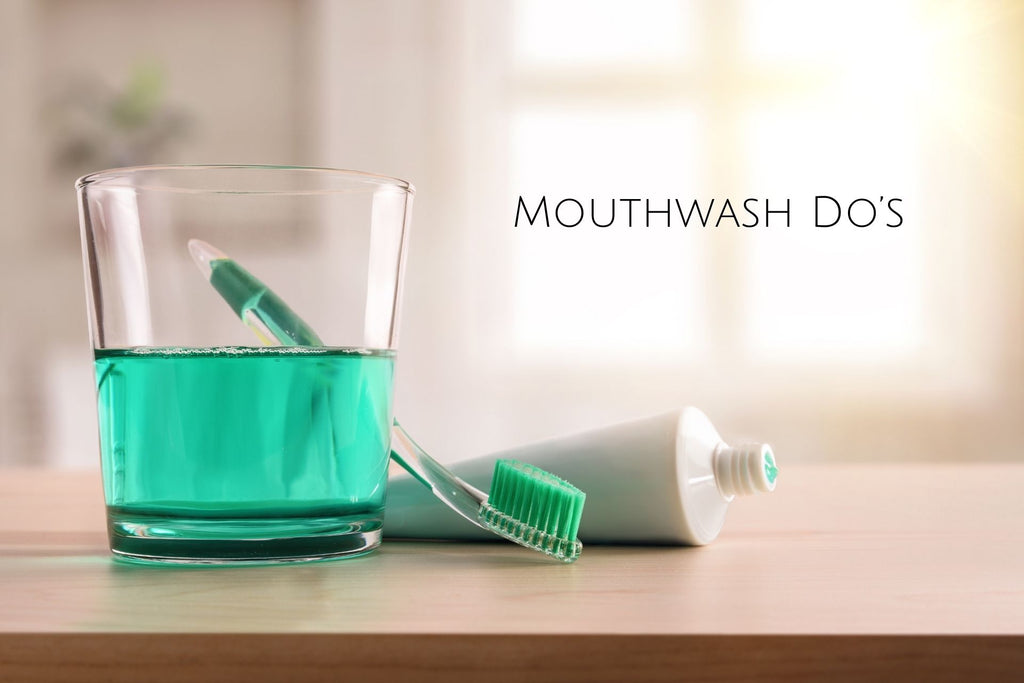
Let’s first explore some of the Do’s when it comes to using mouthwash.
- Choose a mouthwash that is alcohol-free. The mouth is highly sensitive and alcohol can cause high damage. The alcohol-free mouthwash will be more gentle than the others and mouth tissues can be kept safe as well. It helps in avoiding dry mouth problems. The persons facing this issue should always choose alcohol-free mouthwash.
- Fluoride is an essential factor in mouthwash, so make so sure to use one including this. Fluoride is beneficial in improving and strengthening the teeth' enamel. Hence, the right mouthwash not only saves from bacterial infection but also boosts the enamel strength. The doctors prescribe the mouthwash with fluoride for sensitivity problems. It desensitizes the teeth and cures the sensitivity problem with long-term usage.
- The regular usage of mouthwash is highly advised for oral health care. Using it two times a day can reduce the chances of dental decay. Those who are already suffering from tooth decay can use it to accelerate the curing process.
- Daytime is the perfect time to use mouthwash. It is a common practice that we use mouthwash right after brushing our teeth. But, that’s not mandatory or doesn’t have any specific advantage. Instead, you can use mouthwash at any time of the day. Rather, you can use the mouthwash after having food. It will neutralize the pH level in the mouth and stops the damage from acids. Rinse with mouthwash and ensure all-round protection of the mouth.
Mouthwash Dont’s 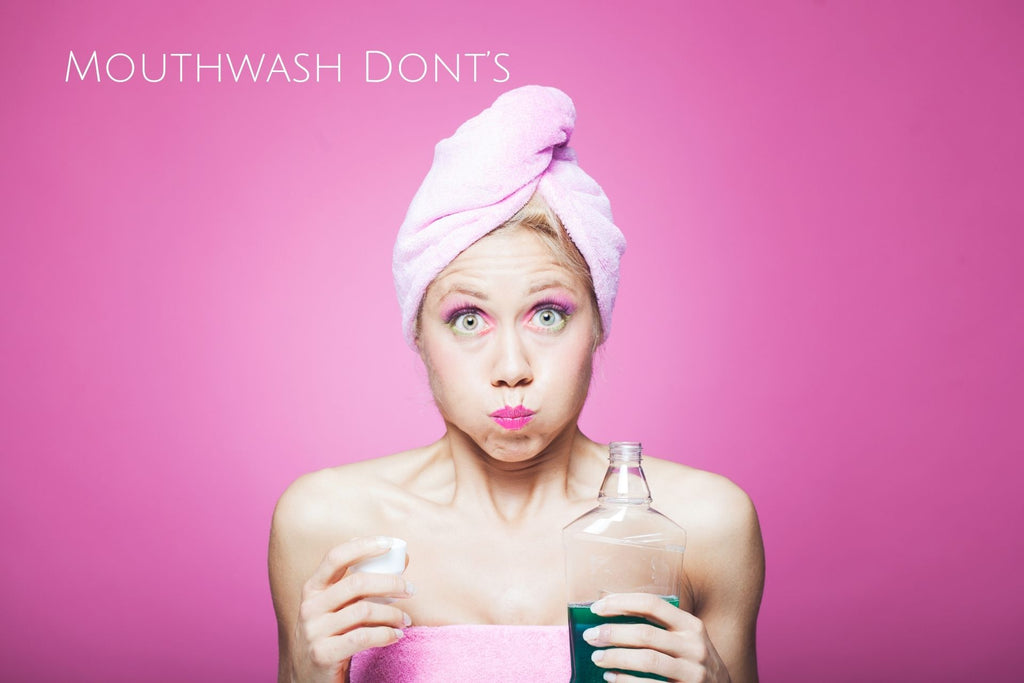
It is very essential to remain aware of the mouthwash don’ts to avoid any wrong practice and gain quick results:
- Mouthwash is just a precaution for the plaque problem in the mouth, it’s not a cure. So, if you’re relying on the mouthwash for curing plaque, you’d end up getting wasting your time. The regular brush along with mouthwash can ensure the protection of the mouth and these are dental health care routines. If the problem of plaque is already spread, you need to consult a doctor and take the necessary medication. You can’t consider mouthwash as a substitution for medical treatment.
- After using mouthwash, avoid using water to rinse the mouth. Again this is a very basic approach of every person using mouthwash. They rinse their mouth with the liquid and use water straight after that. The reason is quite obvious that the water will wash away all the beneficial ingredients that could have helped in curing the mouth problems or protecting the same. There is no point in using the mouth rinsing if the water is washing it all away.
- Stopover usage or mouthwash if you’re doing the same. It is merely a dental healthcare product and shouldn’t be used more than once or twice a day. Most of the doctors prescribe using mouthwash once a day. People using mouthwash every now and then can create chaos for microbial balance in the mouth. To ensure proper results, the right usage of mouthwash is very necessary.
- Stop using mouthwash instantly if you feel like any mouth ulcers or any other disease spread. In some cases, stains can be seen on the teeth. If there are any such signs, either you’re using any wrong mouthwash or it’s not made for you. Anyways, the right step is to stop the usage instantly or take the dental expert's suggestion on the choice. The problems can start appearing right after you start the usage of mouthwash.
- Do not keep using the mouthwash in hope of having the cure for every problem. You must get to the cause of the issue first before making the decision. Take the example of bad breath, it can be due to bacterial infection and it must be discussed with the hygienist. Avoid thinking that mouthwash is the ultimate solution and also do not suggest anyone.
- Take instant consultation with the doctor if you see any foreseen problems after using mouthwash. The routine checkups with a dentist can allow you to be sure that everything is good and you can go ahead with the mouth rinsing. The choice of mouthwash is highly crucial as they come with different products and formulas along with multiple ingredients. Not every mouthwash is there to strengthen the teeth, some can even cause damage.
What Is the Right Way to Use Mouthwash?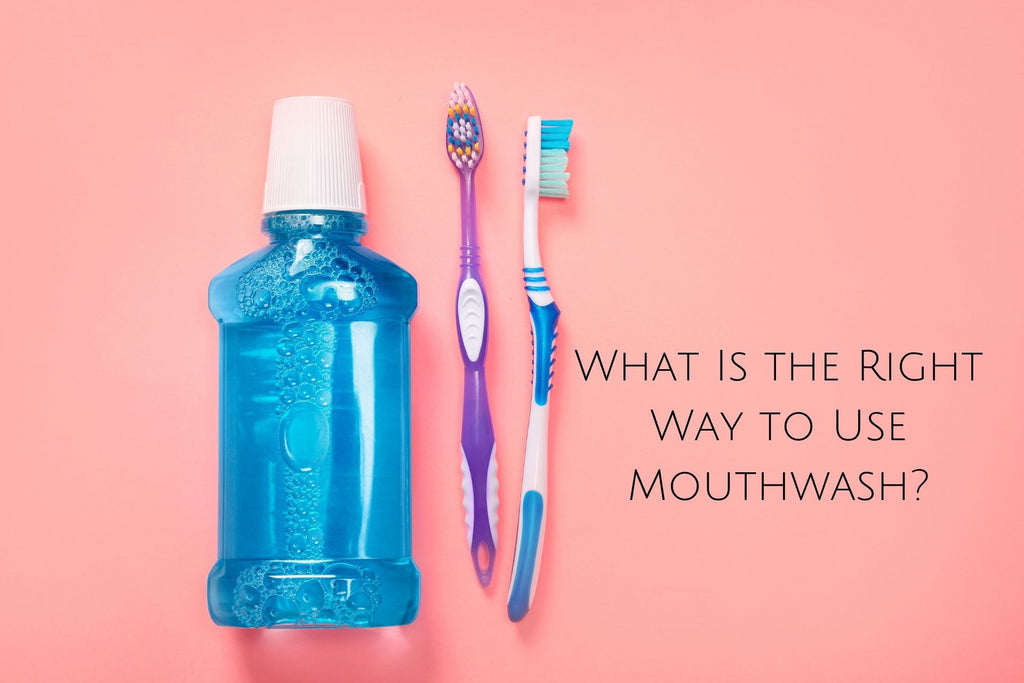
Let’s see the steps to use mouthwash to get the best results without any problems.
- Brushing your teeth is mandatory before using mouthwash. Do not use mouthwash for rinsing your mouth directly. A thorough brush and flossing are advised before going for mouthwash.
Make sure to check if the toothpaste has fluoride. In that case, you need to keep a proper time gap between it and mouthwash because the latter one can wash away the ingredients of the former one.
- Take out the mouthwash in a specific quantity in a plastic cup. You will find the amount for the mouthwash liquid on the package itself. Do not use more than instructions. Prefer to keep it between 3 to 5 teaspoons.
- That’s it, it's time to rinse. Put the mouthwash from the cup into the mouth and keep it there. Avoid swallowing the same as it can cause serious problems. Make sure to swish liquid before using the same in the mouth.
- Gargle the liquid in the mouth for around 30 seconds and rinse the mouth. The trick is to count from 1 to 30 to keep a track of the time.
- Once it is done, spit the mouthwash out in the sink.
Types of mouthwash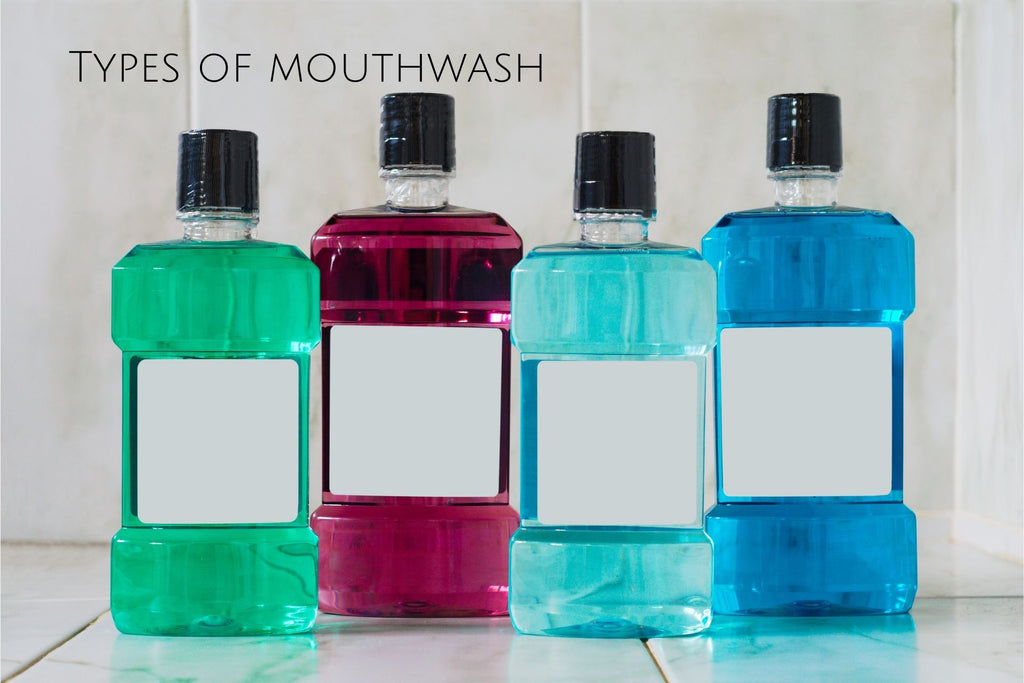
Usually, mouthwash comes in three types of categories:
- Preventative Mouthwash
- Plaque-Inhibiting Mouthwash
- Antiseptic Mouthwash
Although, mouthwash has some set of similar benefits, yet these vary in certain aspects that we are going to discuss below:
The preventive mouthwash is to protect your mouth from oral problems and is the most basic one. These have fewer chemicals and alcohol quantities. They even have fewer chances of any side effects. Get the feeling of fresh breath with the simple mouthwash.
The plaque-inhibiting mouthwash is to handle the problem of plaque. It is suitable for ones who keep on facing the problem every now and then. You can assure high care with concentrated mouthwash. These should not be used for a long time without any consultation by a doctor.
The antiseptic mouthwash is to handle the infections in the mouth. These can help in teeth whitening and are very popular. Though the products have no surety of long term usage, yet you can keep using if they are not causing any problem.
No matter which mouthwash you are preferring, it's better to remain aware of the side effects and other factors to be on the safe side. The idea here is to remove the mouth-related problems, not increase them. If we go with the research, the mouthwashes have been found to be extremely helpful with the majority of people with no side effects. Some of the key benefits of using mouthwash involve both prevention as well as aftercare. These can be understood as the boosters in the healing process of teeth problems.
How often should you use mouthwash?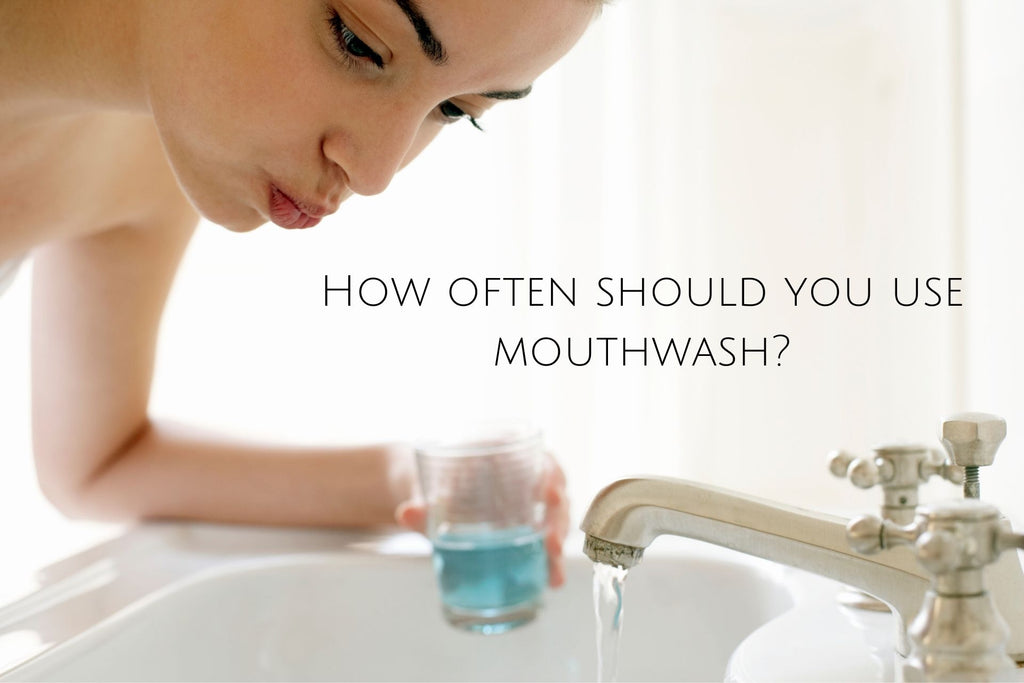
Ideally, the mouthwash should be used once a day and if that’s not giving results, you must consult a doctor before taking up the decision to use it more. Some mouthwash claims to be used twice a day for better results. The primary approach should be to read the guidelines mentioned on the package.
It is also not mandatory to use mouthwash daily. If you’re just using it for precautionary measures, the best thing is to use it occasionally or whenever there will be some oral problems. There is no such guideline available but yet precautionary measures should be in check to ensure the right approach.
Precautions when using mouthwash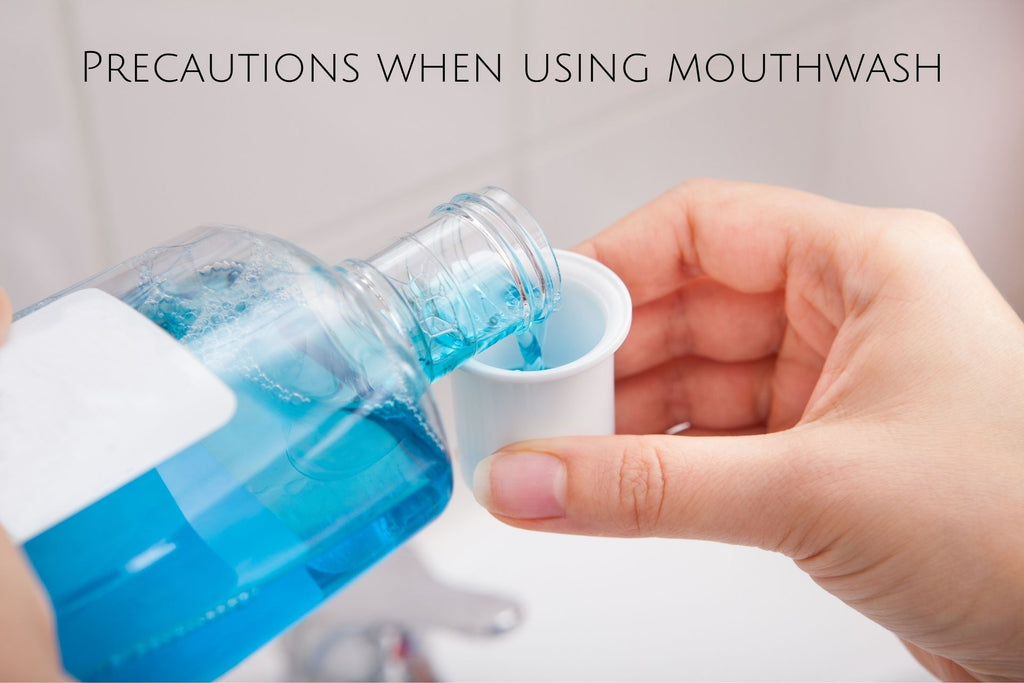
As said earlier, mouthwash consists of some antiseptic and a few chemical components as well. Usage of fluoride and alcohol-based mouthwash for a longer period can cause problems of stains and others. The children should avoid the usage of mouthwash, specifically under age 6. Also, no one should swallow the mouthwash either by adults.
If your mouth has sores already, usage of fluoride can increase the problem. In such a case, the doctor advises avoiding mouthwash. Some even have oral sores or lesions in the mouth that can be healed with mouthwash. But, that too should be tried after taking a doctor’s consultation.
Brushing your teeth twice a day and oral care is mandatory even before the mouthwash. Don’t assume it as some sort of substitution. The former ones must not be switched or skipped for anything. To gain the maximum benefits from mouth rinsing try to follow all factors and approaches mentioned above.
Takeaway
Hence, it must have been clear till now that mouthwash is a very essential product for good oral hygiene and we shouldn’t overuse or consider them as a cure. Mouthwash helps in curbing out bad breath or smell. Along with that, its role in curing plaque or decay problems is another benefit.
With regular brushing and mouthwash, you can ensure safety and avoid gum diseases. The mouthwash will only be better for you if used in the right quantity and approach.
We hope that the above-shared oral care details prove helpful in choosing the right mouthwash along with using it in the right manner.Recent Posts
-
The New Generation of Indian Skincare: Bridging Ayurveda and Dermatological Science
Introduction: For millennia, Indian royalty relied on Kumkumadi Taila—the legendary saffron-infused
-
Red Nails vs Pink Nails: Which Looks More Romantic for Valentine’s Day?
Introduction: Valentine's Day approaches, and with it comes the timeless question: red nails or pink
-
The Wellness Valentine: Valentine’s Day Gift Ideas for Health & Wellness Lovers
Introduction: Valentine's Day has evolved beyond traditional red roses and chocolate boxes. In today





